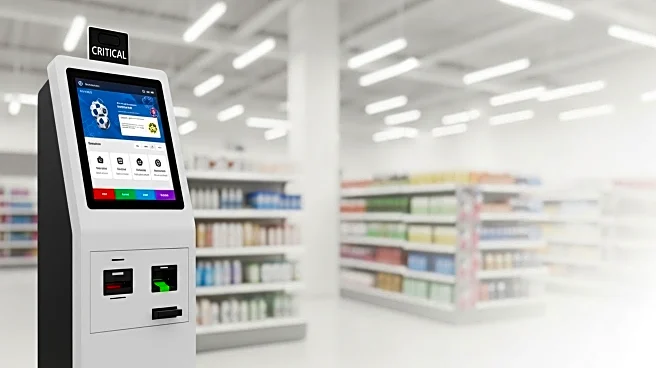What is the story about?
What's Happening?
Target has introduced a new accessible self-checkout technology at its Huntsville store, marking a significant step towards inclusive retail experiences. This technology, designed with input from the blind community, aims to better serve guests with disabilities, including those with motor impairments. The rollout is part of a broader initiative that will see the technology implemented in over 200 stores nationwide by early 2026. Key features include Braille and high-contrast button icons, a headphone jack with adjustable volume, physical navigation buttons, and a dedicated info key. The system also offers a seamless audio experience with prompts for each screen and payment step, enhancing accessibility for blind and low-vision guests.
Why It's Important?
The introduction of accessible self-checkout technology by Target represents a significant advancement in retail inclusivity, potentially setting a new standard for other companies. By prioritizing accessibility, Target is addressing the needs of a diverse customer base, which can lead to increased customer satisfaction and loyalty. This move may also encourage other retailers to adopt similar technologies, thereby broadening the scope of accessible shopping experiences across the industry. The initiative highlights the importance of inclusivity in business practices, which can have positive social impacts and drive economic growth by attracting a wider range of consumers.
What's Next?
Target plans to continue the rollout of this accessible self-checkout technology to more stores across the country, aiming for completion by early 2026. As the holiday shopping season approaches, the company expects the technology to enhance the shopping experience for guests with disabilities, potentially increasing foot traffic and sales. Other retailers may observe Target's approach and consider implementing similar technologies to remain competitive and inclusive. Additionally, feedback from users will likely be gathered to further refine and improve the system, ensuring it meets the needs of all guests effectively.
Beyond the Headlines
This development could have broader implications for the retail industry, highlighting the ethical responsibility of businesses to cater to all customers, including those with disabilities. The move may prompt discussions on the legal aspects of accessibility in retail environments, potentially influencing future regulations and standards. Culturally, it underscores the growing recognition of the importance of inclusivity and diversity in consumer experiences, which can lead to long-term shifts in how businesses approach customer service and product design.















